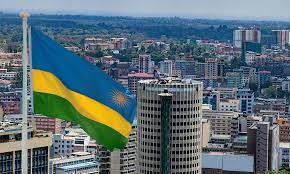
In a recent rallying call to Rwandan parents living abroad, Damascène Bizimana, the Minister of the Ministry of National Unity and Civic Engagement (MINUBUMWE), emphasized the essential role they play in passing on the Kinyarwanda language, and cultural heritage to their children. Bizimana voiced his appeal on Wednesday, July 26, during a workshop held at Green Hills Academy in Rwanda, where around 140 young Rwandans from the diaspora gathered to delve into their ancestry and the history of their homeland.
The attendees of this influential workshop hailed from various countries, including Belgium, the United Kingdom, and Switzerland. They were eager to learn more about their rich heritage and the motherland they may only have known through stories and family tales.
Bizimana firmly believes that the duty of educating children about their cultural heritage does not rest with specific coaches or educators. Rather, it falls to the parents who should spearhead this task, ideally from an early age. The minister further stressed, “Parents serve as their children’s initial coaches in matters of Rwandan culture, being responsible for imparting knowledge right from the beginning. The fundamental starting point lies in teaching them Kinyarwanda language, their mother tongue.”
The profound words of Bizimana underscored the significance of Kinyarwanda, an essential facet of Rwandan culture. Kinyarwanda, as a language, serves not only as a means of communication but also as a vessel carrying the values, history, and spirit of Rwanda.
Furthermore, Bizimana highlighted the pillars of Rwandan values like unity, courage, patriotism, and justice, and urged the children to uphold these principles. He strongly advised against divisive actions, betrayal, and hatred, which can corrode the fabric of any community.
Parents from the diaspora echoed Bizimana’s sentiments. Francoise Muhorakeye, a Rwandan parent residing in the United Kingdom, spoke of the various educational initiatives aimed at enlightening young Rwandans born abroad about their cultural heritage, traditions, and history. She said, “We found out that this initiative of teaching them Kinyarwanda, as well as traditional dance and other culturally related activities, is something they love.”
Chantal Muteteri, another parent from Belgium, also shared her experiences, emphasizing the importance of actively preserving cultural identity for children. It molds their character and decision-making abilities as they transition into adulthood.
The four-day camp proved to be an enriching experience for the young attendees. It presented a multitude of opportunities to explore Kinyarwanda language, traditional Rwandan dances, and visits to historical sites like the Campaign against Genocide Museum and the National Museum of Rwanda in Huye. The purpose was to instill a deeper sense of patriotism and civic responsibility, further illustrating the profound link between language, culture, and national identity.
The minister’s clarion call serves as a potent reminder that language, particularly Kinyarwanda, serves as an anchor to one’s culture and identity, connecting the diaspora to their Rwandan roots, fostering unity, and engaging civic responsibilities.



















